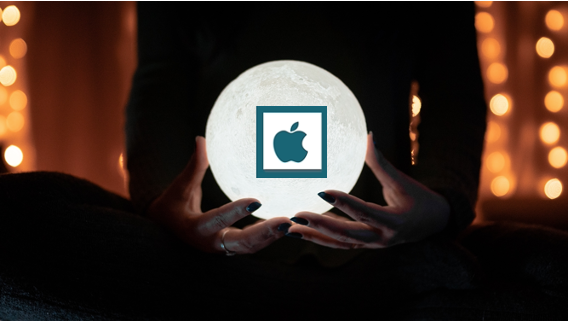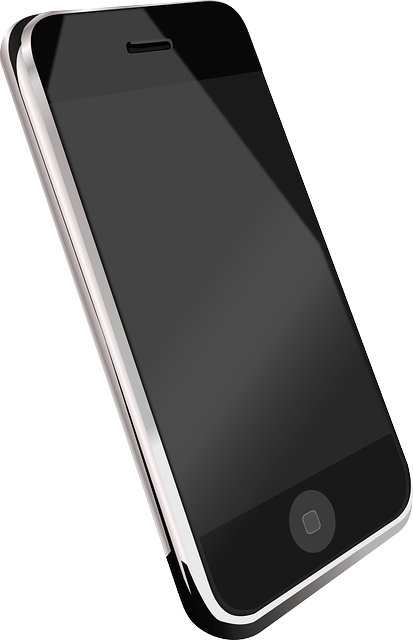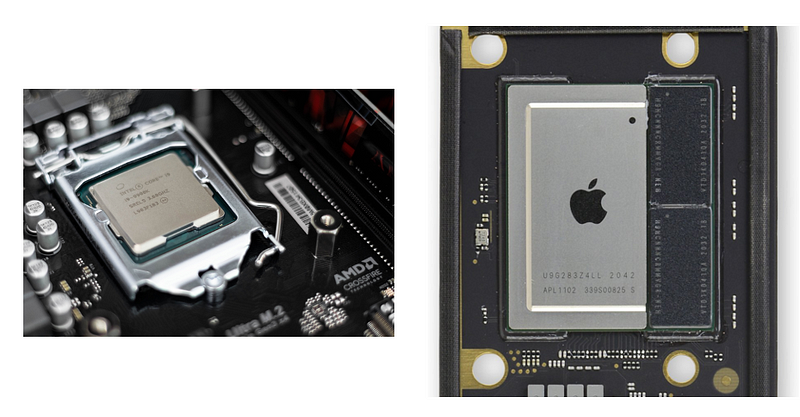Apple's Future: Will it Thrive or Fade Away?
Written on
Chapter 1: Apple’s Current Standing
At the beginning of 2022, Apple reached an unprecedented share price, marking a strong start for the year. However, the question remains: can this momentum be sustained, or will Apple face a fate similar to other tech giants of the past? History tends to repeat itself, prompting speculation about Apple's relevance in the next 10 to 20 years.

Crystal Ball photo by Gantas Vai?iul?nas from Pexels, Apple logo inserted by author. Apple made history as the first company to hit a market capitalization of $3 trillion, achieving a peak share price of $182.88 on its first trading day in 2022. This remarkable confidence from investors indicates a strong belief in Apple's ability to continue excelling in selling iPhones, Macs, and expanding its TV and music services.
Steve Jobs, the visionary co-founder of Apple, was unparalleled in his ability to transform existing technology into desirable products that were not only functional but also aesthetically pleasing. He recognized opportunities that others overlooked, bringing innovative ideas to fruition.
For example, when Jobs introduced the iPhone, Microsoft CEO Steve Ballmer dismissed it as an overpriced failure—only to later acknowledge his error. Similarly, Nokia and BlackBerry underestimated the iPhone's appeal, leading to their eventual decline, while Apple surged ahead.

Image by OpenClipart-Vectors from Pixabay. Despite Apple's current achievements, it is essential to critically evaluate what has transpired since Steve Jobs' death in October 2011. Jobs left a significant legacy for the current CEO, Tim Cook, and shareholders, which includes iconic products such as the iPod, iPhone, iPad, and various Macs.
Aside from the AirPods, Apple Watch, AirTags, and HomePods, the core product lineup has largely remained unchanged since Jobs' era. While Tim Cook has excelled in refining and enhancing the ecosystem envisioned by Jobs, true innovation has stalled, with Apple appearing to have reached a plateau.
Given its substantial market capitalization, Apple has every reason to feel optimistic about its future. Nevertheless, vigilance is critical, especially in light of emerging disruptive competitors. Nokia and BlackBerry's adherence to outdated formulas ultimately led to their demise, a fate Apple must avoid.
Apple's control over both hardware and software has always been an advantage, allowing for quick adaptations. Their recent transition from Intel chips to their proprietary M-series SoC (System on a Chip) exemplifies this flexibility.

Left image: Intel Chip photo by Christian Wiediger on Unsplash. Right image: Apple M1 SoC photo by IFIXIT (with permission). While the M-series chips are impressive, they do not represent a leap in innovation comparable to the introduction of the first iPod or iPhone. Continued evolution without true innovation will hinder Apple's relevance in the coming decades.
Examining the broader tech landscape, can Apple replicate the groundbreaking innovations of the Jobs era? Unfortunately, the current technological environment seems stagnant, with most advancements being iterations of existing products. The fundamental designs of computers, smartphones, cameras, and other devices have not significantly changed. Though new technologies continue to improve in speed and efficiency, these are merely refinements.
A new paradigm is necessary for Apple to maintain its relevance. Their ventures into electric vehicles and virtual reality headsets indicate a desire to diversify; however, it's uncertain whether these products will revolutionize the industry as the iPhone did.
If we peer into the future, what might the technology landscape look like in 10 to 20 years?

Photo by Ali Pazani from Pexels. Future technology must transcend physical limitations, incorporating concepts like holographic displays, implants, infinite data storage, and advanced quantum computing. If Apple wishes to thrive, genuine innovation is essential. The current market success does not guarantee future triumphs; a new technological paradigm looms on the horizon. Playing it safe could jeopardize their standing in the industry.
Thank you for taking the time to read this. Please feel free to leave any questions or comments below. Don't forget to join my email list or consider supporting my work through a coffee! ☕ And if you’d like to enjoy unlimited articles on Medium, consider becoming a member through my affiliate link!
Chapter 2: Critical Perspectives on Apple
The first video titled "Has Apple Lost its Soul?" delves into the deeper questions surrounding Apple's identity and future direction.
The second video, "I Canceled the iPhone 16 Pro - Has Apple Lost Its Way?" discusses recent developments and critiques surrounding Apple's latest offerings.